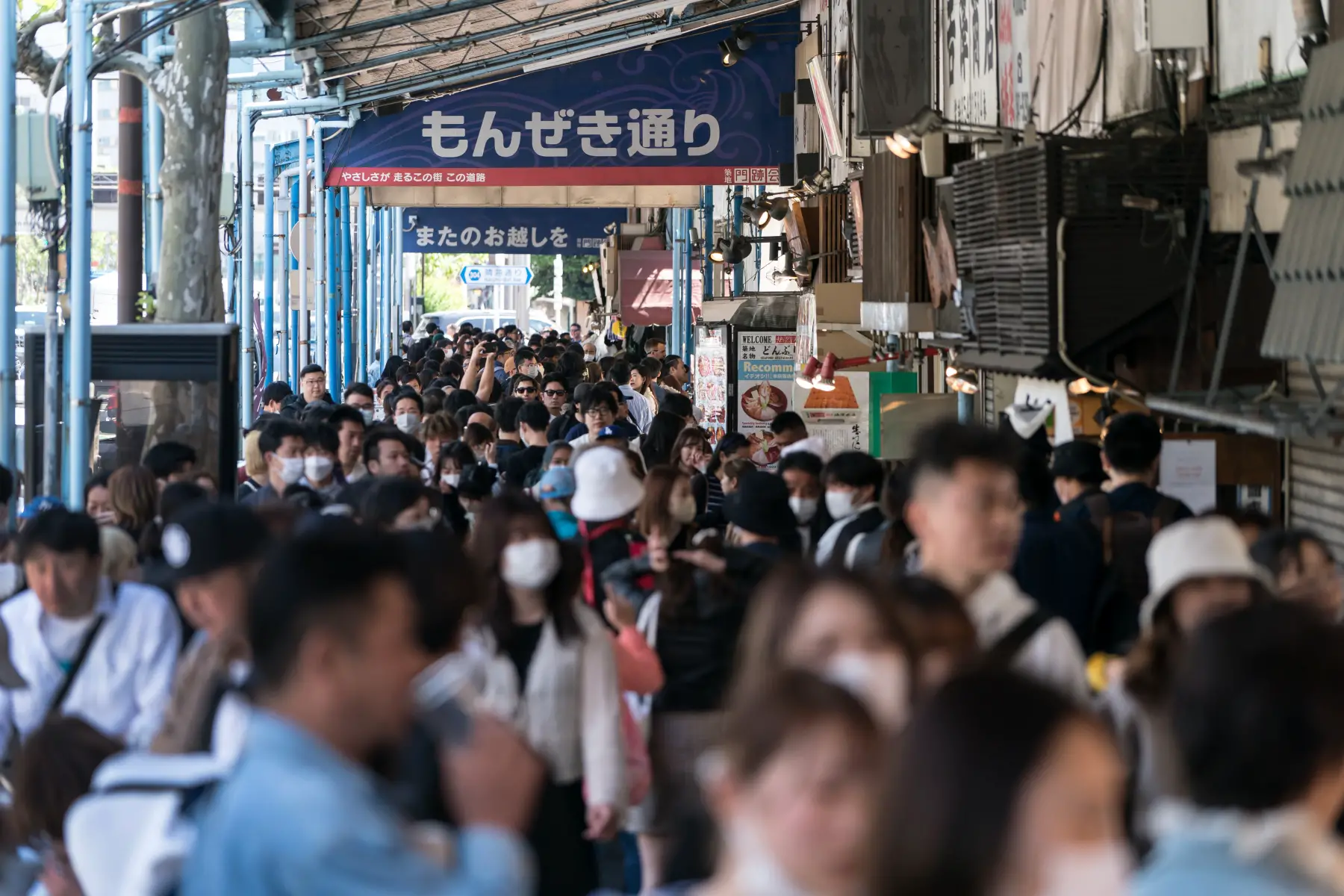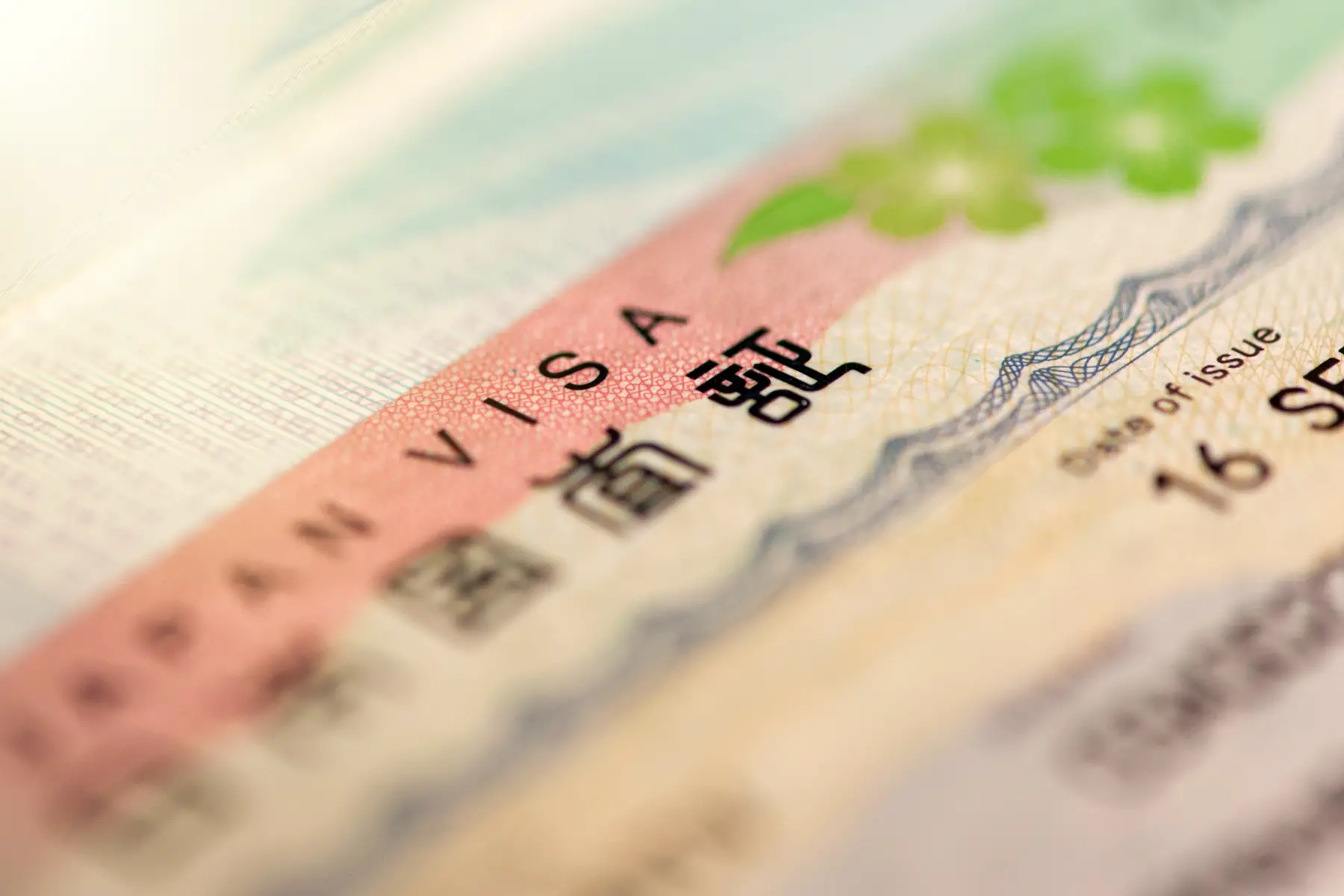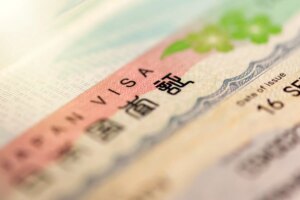After moving to Japan, and settling basics such as housing, banking, schools, and utilities, most expats will want to work in the country. Of course, this will mean trying to get a work visa, finding a job, and navigating the intricacies of Japanese business culture.
However, working expats will also need to understand how the minimum wage system in Japan works, what kinds of salaries to expect, and how to find recourse if their pay is unfair. To help you assess your wages, learn more about the following topics:
What is the minimum wage in Japan in 2025?
Interestingly, the minimum wage in Japan is set by prefecture, not as a single national rate. While the Japanese government sets a target national average based on the cost of living, each of Japan’s 47 prefectures has its own distinct minimum wage (although many are around the same).
In 2025, the average minimum wage across all prefectures in Japan is ¥1,054/hour. Set minimum wages range from around ¥1,200–900 across the country, with Tokyo being the highest. This is a result of variations in regional economic conditions, cost of living, and local labor markets.
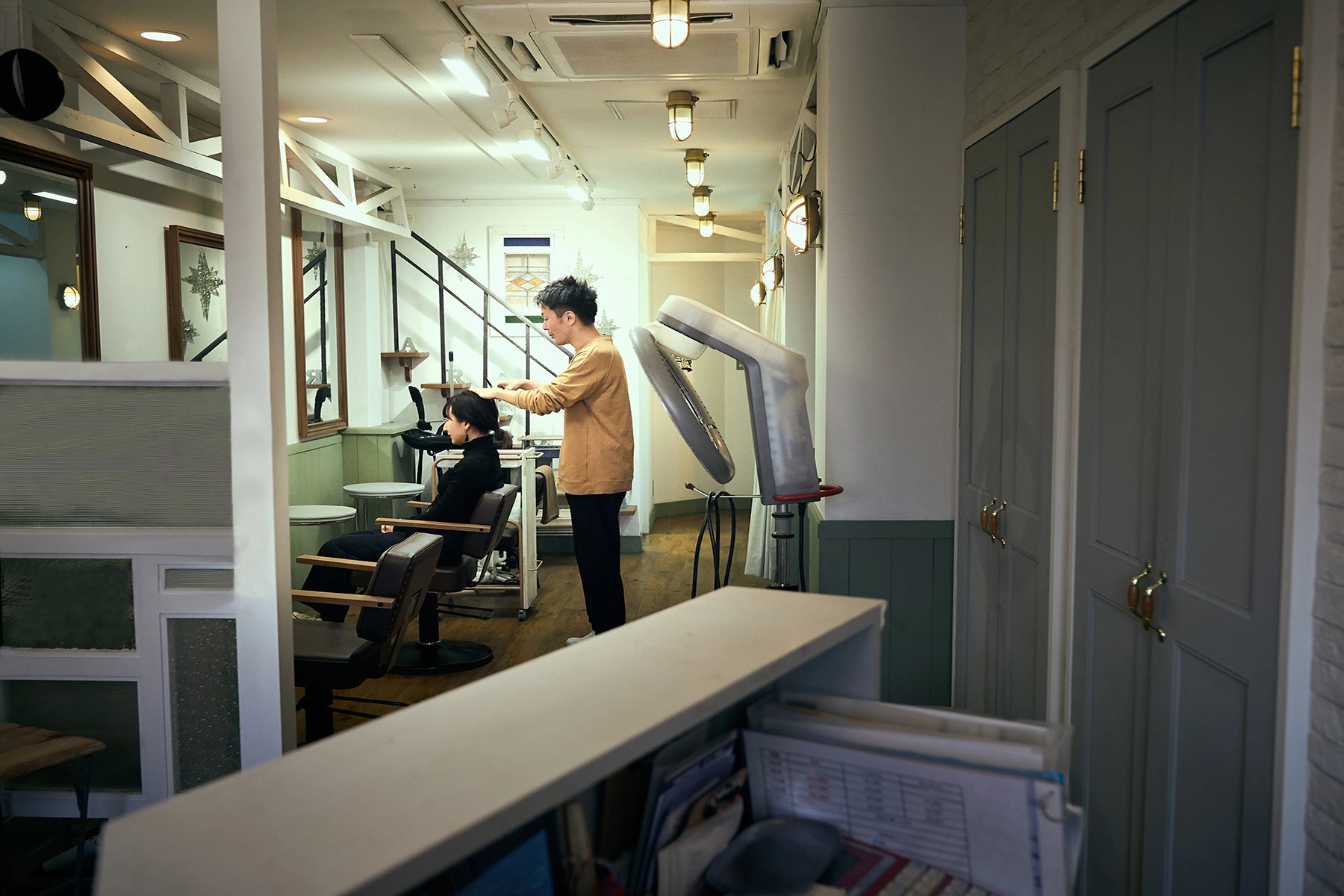
Here’s a breakdown of the set minimum wage according to some of the most metropolitan Japanese prefectures:
- Tokyo: ¥1,163
- Kanagawa: ¥1,162
- Osaka: ¥1,114
- Saitama: ¥1,078
- Aichi: ¥1,077
- Chiba: ¥1,076
Exceptions to the minimum wage in Japan
Although Japan issues a national minimum wage, there are certain variations and exclusions.
For example, each prefecture (or region) within Japan is able to set its own minimum wage that corresponds to the local cost of living. In addition, certain industries set their own minimum wage, which is usually higher than that set by the national government. As such, whichever minimum wage is higher will be the one that applies.
Part-time workers in Japan
Generally speaking, Japanese law enforces a principle of equal pay for equal work. This means that part-time workers should usually receive the same minimum wage as their full-time counterparts, but on a pro-rata basis that depends on how many hours they work.
Temporary workers in Japan
Because the country enforces no discrimination policies in employment, temporary workers are entitled to the minimum wage in Japan. This is as long as they have the same responsibilities and do the same work as regular employees.
The only real difference is that temporary workers will usually have fixed-term contracts, while full-time employees will have indefinite contracts.
Young people in Japan
All employees must receive the local minimum wage of their prefecture in Japan. Consequently, even young workers should get this. However, the types of jobs young people do will often differ from those that adults pursue in their professional careers. For example, students may work part time in cafés, restaurants, and convenience stores.
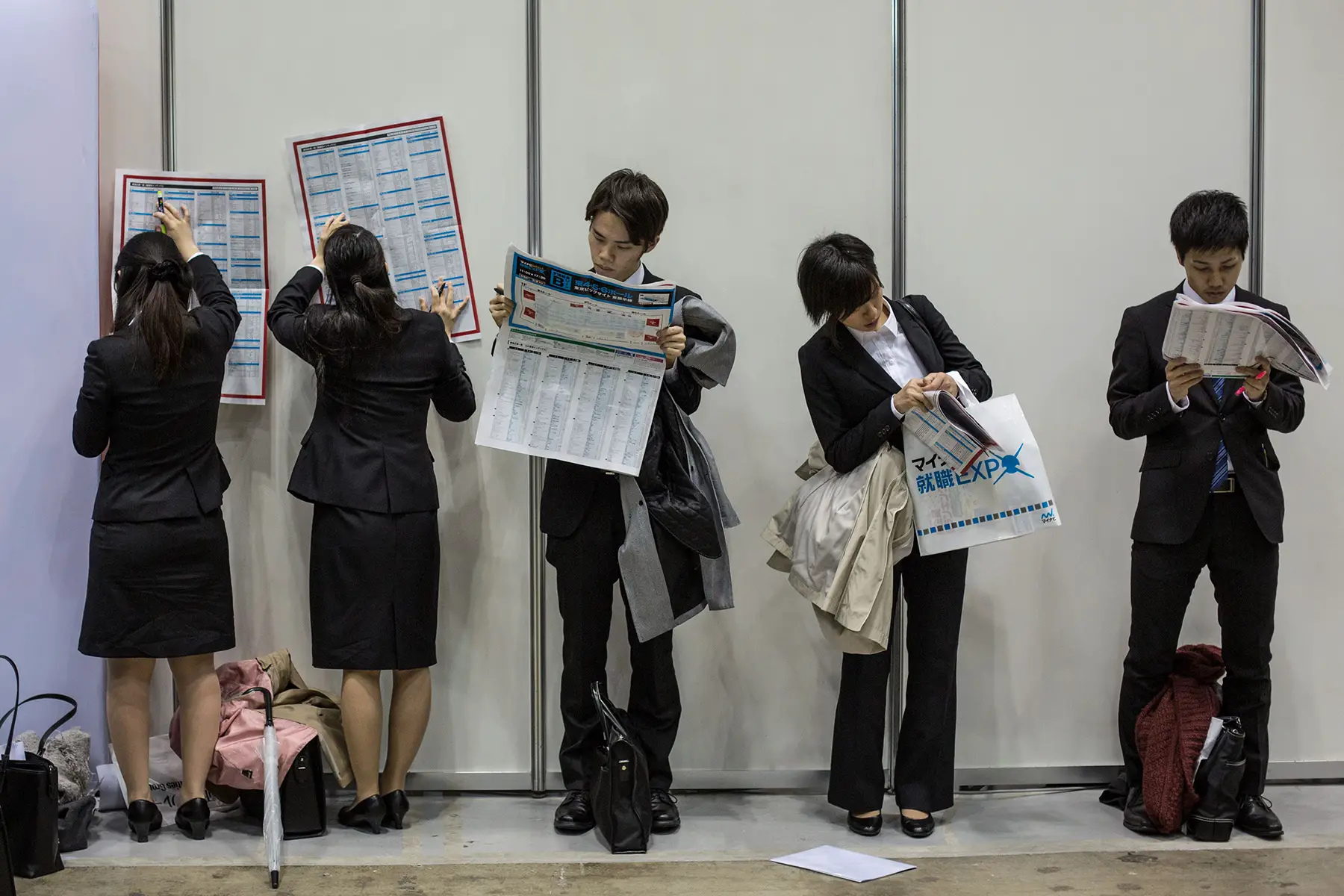
Interns and apprentices in Japan
You can find both paid and unpaid internships in Japan. Therefore, there is no official minimum wage in Japan for interns. Expats looking at internships in the country should note that most internships in Japan are not paid.
Average salary in Japan
Despite the minimum wage in Japan, employees generally earn a higher monthly salary. For example, the average employee in Japan makes around ¥4 million per year. Of course, salaries can differ greatly depending on the job, but also experience, location, and education level.
These salaries often include numerous benefits, including annual pay and sick leave, pension, and sometimes even housing and transport.
What are the highest paying jobs in Japan?
As is usual, salaries in Japan can also vary greatly by sector. This is because certain industries require more skills, experience, and education and therefore offer better pay. Below are some estimated salaries for roles across different sectors, which may be lower in practice depending on your experience and skill level:
- Business management: ¥628,436
- Software development: ¥599,098
- Telecommunications/ICT: ¥537,812
- Law: ¥529,353
- Banking: ¥500,644
- Pharmaceuticals: ¥493,170
- Information Technology (IT): ¥482,764

Salaries in Japan by region
As in most countries, salaries can also differ depending on their location within Japan. Generally, the areas which are more business-orientated and have more residents will have higher salaries. But, of course, this is offset by the somewhat higher cost of living in these areas.
Tokyo has the highest average income of all the Japanese prefectures and brings up the national average significantly. After Tokyo, the highest earning prefectures are Aichi, Shizuoka, Tochigi, and Toyama.
Salary checker in Japan
Expats who want to know what kind of salary to expect while looking for jobs in Japan can refer to the following sites:
Gender pay gap in Japan
As of 2025, Japan continues to face a significant gender pay gap, with women’s wages averaging between 70% to 80% of men’s earnings. This disparity persists despite recent legislative efforts aimed at promoting transparency and equality in the workplace.
For example, in July 2022, Japan enacted the Act on the Promotion of Female Participation and Career Advancement in the Workplace, mandating that companies with more than 300 employees disclose their gender pay gap data annually. These disclosures are required within three months following the end of the fiscal year.
In terms of world gender pay equality rankings, the World Economic Forum (WEF) ranked Japan 118th out of 146 countries in 2024. However, WEF noted that the country is making significant progress in recent years.
Salaries and wages for international workers in Japan
Many internationals will earn more than the minimum wage in Japan. This is because expats in Japan often work as finance professionals, high-level hospitality staff, IT experts, and engineers. However, highly skilled foreign workers in sectors that require certain experience and training can earn even more.
It’s important to note that in order to qualify for a Japanese work visa, you will need to meet a minimum salary threshold. This varies depending on what type of visa you’re applying for, but the government definition of “sufficient income” is no less than ¥200,000 per month.
If you’re looking to obtain Japan’s highly skilled professional visa, you’ll go by the points-based system when it comes to salary. You need to earn at least ¥4 million per year but receive additional points up to ¥7 million in annual salary.
What to do if you’re not being paid the minimum wage in Japan
Employers who do not pay the minimum wage in Japan can face penalties, and it is important to understand how this works. Generally, if found to be in breach of minimum wage laws, the employer may have to pay a fine of up to ¥500,000. To make a claim, you would need to go to the Prefecture Labour Office (都道府県労働局).

Japan also has several laws that protect employees from discrimination in the workplace. For example:
- The Law on the Comprehensive Promotion of Labor Measures and Stabilization of Employment of Employees and Enrichment of their Work Lives states that employees cannot discriminate because of age during the recruitment process.
- The Law Concerning the Stability of Employment of the Elderly deals with non-discrimination against seniors.
- The Labor Standards Law prohibits discrimination because of nationality, race, religion, and social status, among other things.
- The Law on Security Equal Opportunity and Treatment between Men and Women in Employment regulations discrimination due to gender.
As such, it is technically illegal for employees to pay, for example, a woman less than a man for doing the same job.
Because of the non-discrimination principles that the Japanese law mandates for the country’s workforce, employees who face discrimination have certain options for recourse. For example, they can file a civil lawsuit against their employer, or apply to the labor tribunal for a hearing. The employee can ask the courts to:
- Void the discriminatory treatment
- Order the employer to reinstate the employee
- Or get the employer to pay compensation.
Useful resources
- National Tax Agency (NTA) – official information on average salaries
- Work and wages – WageIndicator.org
- Employment and Employee Benefits in Japan – Thomson Reuters



